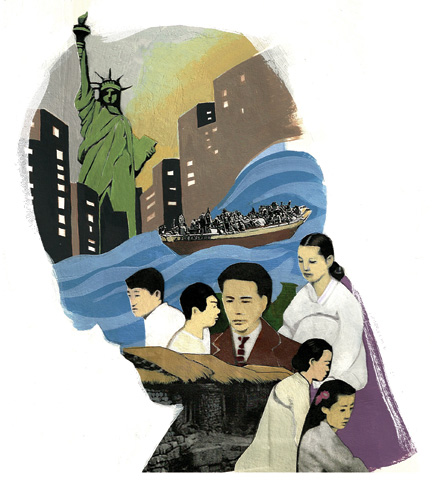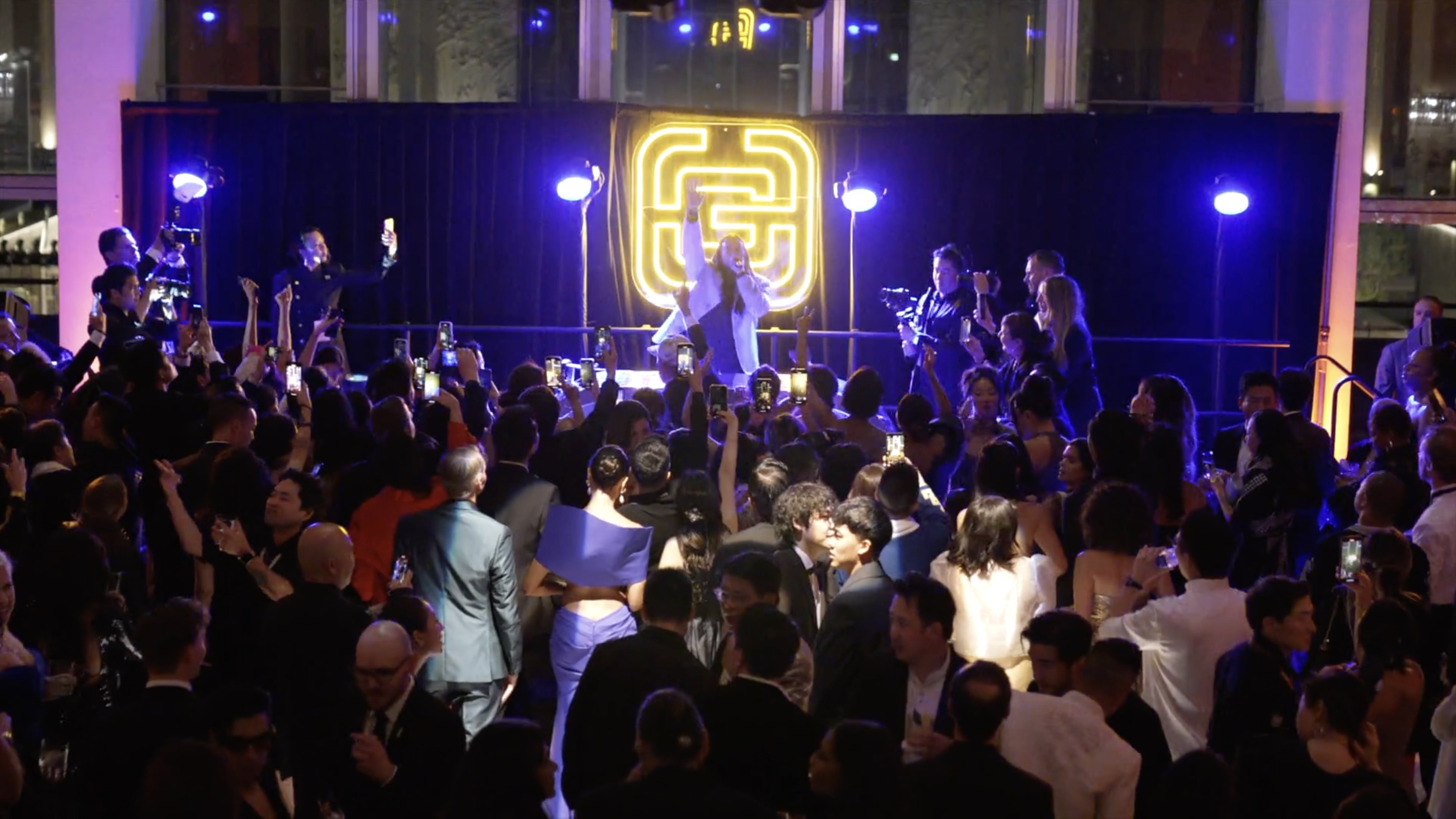An octogenarian revisits the ghosts of a “Before Koreatown” era

By K.W. Lee
Illustration by Eunice Choi
Aging is like a thief stealthily creeping in the middle of night when you are deep asleep.
But it hits you like a truck barging into your living room at the dawn of your 80-plus-one birthday. And you are suddenly reminded that you belong to another era—namely that of “Before Koreatown”—and to another vanishing breed of self-exiles that came to America aboard a slow boat instead of a Korean airliner.
Seasickness (and homesickness) were our blues in the New World called Miguk (Beautiful Country). We of the “BK” generation were roaming in the vast continent from nowhere bus stops to chopsuey cafés in seamy Chinatowns for all-too-brief reunions during summer breaks.
We of the post-liberation 1950 vintage had no Koreatown to turn to for solace. Ours was a generation of rootless sojourners who carried a secret Koreatown in our desolate hearts between fleeting encounters and inevitable departures.
We had holes in our soul—welling pains inside, but nowhere to hide our feeling of somewhereness. Koreatown was nowhere.
All too misty yet looming in our aching pupils were the tearful goodbyes; hundreds of familiar groping faces; our motherland’s eternal grassroofs, gray-purple in the gathering sundown dusk; the barren ridges of mountains; and the wailing wind from Siberia.
You can’t go home again. As it was true with Thomas Wolfe, so it was with us—the price prodigal sons were born to bear.
Faces, gestures, and goodbyes. They flash before my octogenarian memory’s eyes. Time and space have intervened. I try to remember their full names. But I fail.
There was “Air Drop Spy.” His parents kidnapped to the North during the Communist invasion, dispossessed and orphaned. He wanted to go to America so badly. To earn boat fare and tuition money, he joined an almost certain one-way intelligence mission: air drops behind enemy lines. He came back alone—alive.
Then there was “Detour Student.” He sought what he thought was an easy route to America—that is, via Japan, thus skirting the tough government red tape. His smuggle boat got intercepted by the Japanese coast guard, and he languished for years in a detention camp in Kyushu. After a series of tearful letters from him, I lost contact with the heartbreak kid.
“Eternal Student” was another unforgettable figure out of the past. He grew tired of enforced “eternal learning” on American campuses. You had to stay put in school because strict immigration rules forbade foreign students from regular jobs while under student visa. He broke out of the academic prison into the free world by joining a traveling theater group as a stagehand. He ended up in Ellis Island (warehouse for errant aliens) and was reported to Europe. He didn’t have the heart to face his family back home. He happened to be a cousin of mine.
“Poker Face” looms before me. A born loser, he turned out to be. During his hectic first year in school, he often escaped into the magic of poker games with shady downtown characters. His gambling debts mounted. He hopped from one pawnbroker to another at the expense of belongings of his friends. School authorities were after him too, for unpaid loans. To elude their pursuits, he vanished into the U.S. Army. I’ve never heard from him again.
“Homesick Romeo” sported good looks, drawing girl-moths like a summer camp light. During the Korean War, the then-middle school kid in the communist North fled south for an American education. Homesick for his folks back in the North, he drowned in spirited sorrow. During one of his summer wanderings, he fell out of a lofty, cheap hotel window. He is now buried in a cemetery for the homeless in a Midwest city.
“Fallen Flower” was remembered for her wan smiles, if not her plain face. She was spurned in her love affair with a fellow countryman who dropped her in favor of the protective citizenship of an American-born Chinese girl. Her wedding aborted, she plunged 10 floors from a Midwest city hotel room to her death.
“Mr. Enterprise” was always cooking up ways to make a fast buck. One hot summer he started a mini-kimchi-factory for fellow Koreans in a metropolis. While away at work, the fermented kimchi jars exploded in his rooftop apartment. It caused a commotion in the huge flophouse. Firemen became almost overwhelmed by the inscrutable stench. He was hounded out of the neighborhood, needless to say.
And “the Orphan” came to America after successfully persuading a kindly GI to adopt him. His GI “father” joined him later in America, but couldn’t find a job in his own hometown in the South. The adopted son rose to the challenge by supporting his adoptive father as a day laborer.
I try to remember other faces, gestures and goodbyes. But dim memories fail me. Wherever they may be—somewhere here or yonder—I wish them peace and solace.
—
K.W. Lee, 81, is a pioneer Asian American journalist and formerly edited Koreatown Weekly and the Korea Times (English) Weekly. He is working on several books, including Lonesome Journey: The Korean American Century, a collection of 70 life histories.







